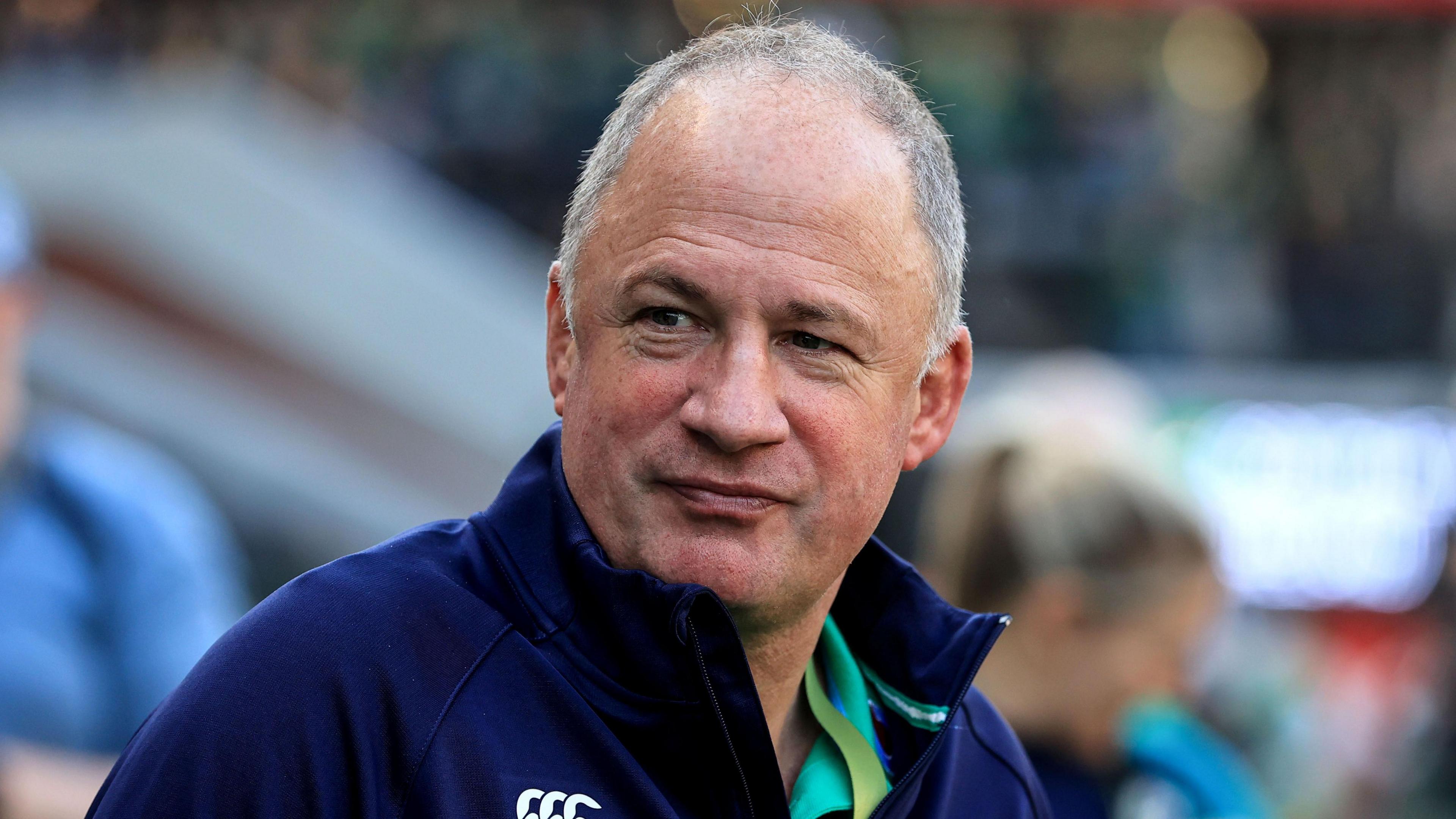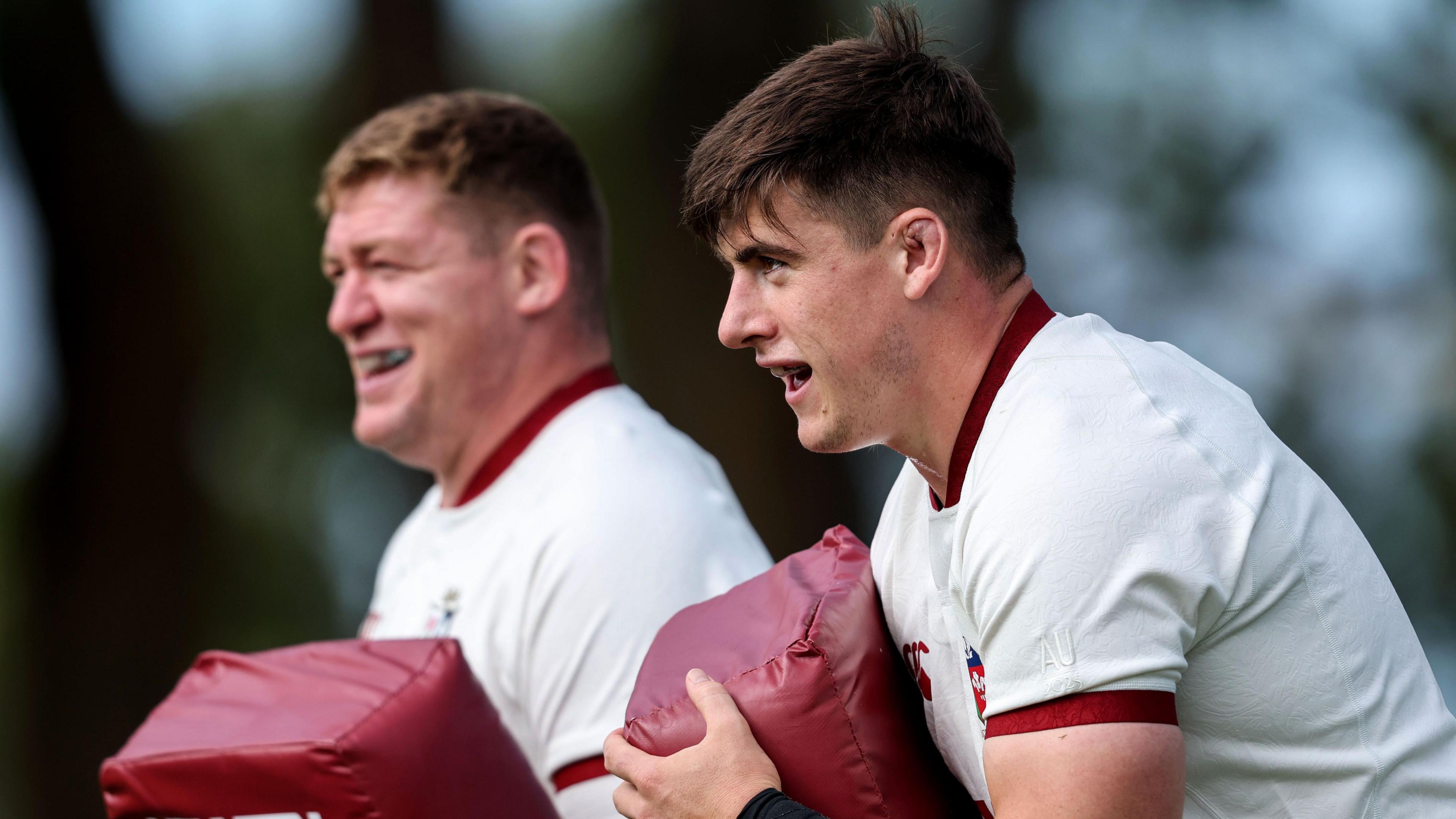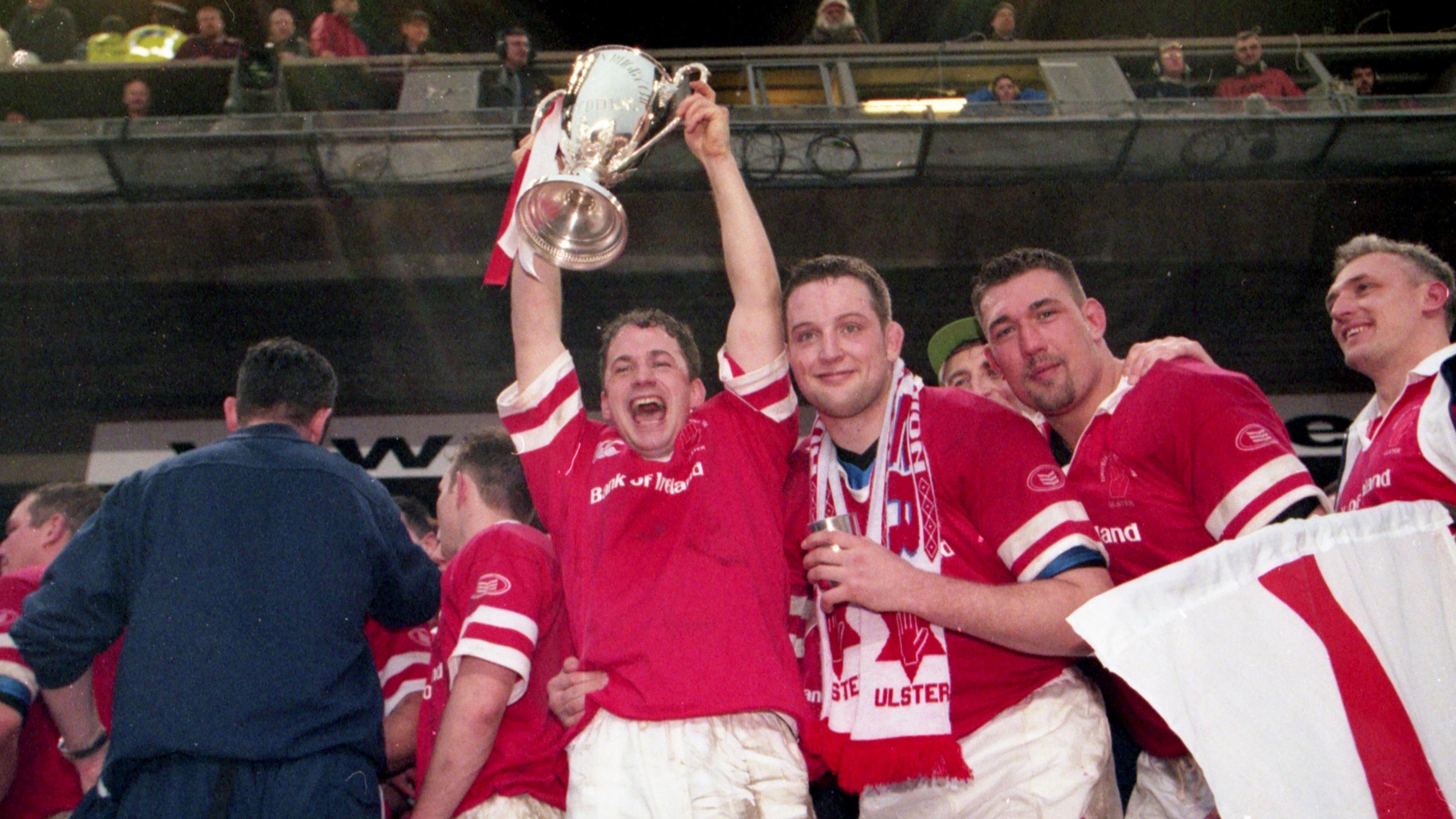Leinster 'can never be too strong' - Humphreys

David Humphreys became the IRFU's performance director in June 2024
- Published
Three of the four provincial sides must be made "more competitive" in order for Ireland to remain in the upper echelons of the sport, says Irish Rugby's performance director David Humphreys.
Ireland are currently ranked third in the world and have won two of the past three Six Nations titles, including a Grand Slam in 2023.
United Rugby Championship (URC) winners Leinster, however, consistently provide the bulk of Andy Farrell's national side, with Ulster in particular struggling for Test representation in recent seasons.
"When I first came in, there was a lot of talk around Leinster [being] too strong. In a high-performance system, a team can never be too strong," said Humphreys, who has been in position since June last year.
"Ultimately, the goal is to be the very, very best. They are very close to being in that position.
"But the challenge that I believe we in the IRFU [Irish Rugby Football Union] have, and in my role, is to make the other three more competitive."
'Like Ireland v Bulls' - depth key to Leinster's URC win
- Published15 June
'He's got such an aura' - Farrell's rise to Lions top job
- Published20 June
How tough season came to premature end for Ulster
- Published12 May

Nine Leinster players are set to feature for the British and Irish Lions against Western Force on Saturday
There are currently 12 Leinster players in Farrell's British and Irish Lions squad touring Australia while another, Munster's Tadhg Beirne, came through the Leinster school system.
It is at such an underage level where Humphreys believes the IRFU must start their attempts to redress the imbalance.
While the likes of Jamison Gibson-Park and James Lowe are examples of clever recruitment under World Rugby's previous three-year residency rule, Dublin schools have provided the most reliable production line of talent for Leinster and subsequently Ireland.
Humphreys, capped 72 times by Ireland, is keen to mirror that standard in Ulster, Munster and Connacht schools.
"The challenge becomes how we close that gap in the provinces? We can do it a little bit by recruitment, by being a little bit more flexible in terms of who they can recruit and when they can recruit, but that's a short-term solution," he said.
"I fundamentally believe, based on my experience, what we've seen working through the Irish system is that if we can support players below what is traditionally considered the pathway, going into the schools and putting directors of rugby in there or supporting schools in a way they feel is necessary to improve their rugby programme, we can get a longer-term fix which will ultimately improve the provinces and ultimately support Ireland."
The union's decision to axe their men's sevens programme was made last month with Humphreys saying the financial savings will be invested into provincial "pathways" and the women's game.
"That was part of the decision to finish the men's sevens programme. It wasn't simply a financial decision, it was a performance decision based on [being] able to reallocate the resources in our system," he added.
"The budgets are not being cut. We've made a performance decision based on the financial reality of the world that rugby is in, not just the IRFU but the wider world, and to say we're going to take a longer-term solution which is [that] the money we're going to save from finishing the men's sevens programme is going entirely into investing in the three provincial pathways and the women's game."
'We all recognise that Ulster are in a rebuilding phase'

Ulster were the first Irish province to win the European Cup in 1999
The struggles outside of Leinster have been most pronounced at Ulster, who have not won any silverware since Humphreys was part of their Celtic League title team in 2006.
The 53-year-old was also captain when his native province beat Colomiers to be crowned champions of Europe in 1999. Next season, however, they will not play in the top tier competition for the first time since it was introduced in 1995.
Australian international Angus Bell and Northampton back row Juarno Augustus have been recruited to strengthen a side that finished 14th in the URC last season, while Humphreys said head coach Richie Murphy has the "pedigree" to turn things around.
"If you look at their age profile, they're very young and there are lots of very good players there, the key is how quickly can we get them to the point that they are competitive again," he said.
"You've seen a couple of signings come in that will definitely strengthen them, but again it's more about making sure that the decisions we make now around the coaching [and] recruitment have a short-term impact to address the issues that you have, but we're also making decisions that make sure that in five years' time, 10 years' time, those provinces are all competing at the level we want.
"The expectation in Ireland now is that we have four provinces that are competitive, and an Irish team is on top of the world."